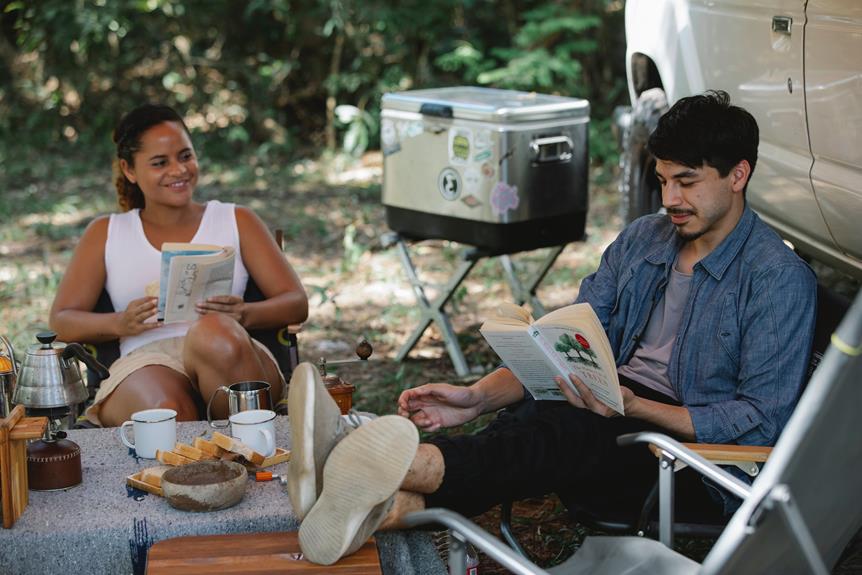In a world of diverse preferences, it's common to find couples navigating different lifestyles. One challenging scenario is when one partner drinks alcohol while the other abstains.
In this insightful article, readers will explore the perspective of a person whose girlfriend drinks while they do not. From personal choices and family influence to trauma and addiction, it delves into the complexities and offers advice on communication, understanding, and support.
Discover how to navigate this dynamic and find common ground in a relationship where one partner drinks and the other does not.
Key Takeaways
- Understanding the reasons behind drinking habits is crucial in a relationship where one partner drinks and the other doesn't.
- Family influence and trauma can play a significant role in shaping an individual's drinking behavior.
- Addiction to alcohol can disrupt sleep patterns, leading to insomnia and mood swings.
- Open and honest communication, setting boundaries, and encouraging professional help are essential in supporting a partner who drinks when you don't.
Reasons for Drinking and Early Drinking
Many individuals choose to consume alcohol for various reasons, especially during their early years. Understanding the reasons behind drinking habits is crucial in order to address any potential consequences that may arise from early drinking.
It's important to approach this topic with empathy and knowledge, as the motivations behind drinking can vary greatly from person to person. Some individuals may have been influenced by their family's drinking habits, while others may turn to alcohol as a means of coping with trauma. Addiction can also play a role, as some individuals may have started drinking at a legal age but have since struggled with moderation.
Influence From Family and Coping With Trauma
Influenced by their family's drinking habits or seeking solace from trauma, individuals may turn to alcohol as a coping mechanism. Family influence plays a significant role in shaping a person's relationship with alcohol. If someone grows up in a household where drinking is normalized or even celebrated, they may be more inclined to adopt the same behavior.
Similarly, individuals who've experienced trauma may turn to alcohol as a way to temporarily numb their feelings or suppress their pain. However, it's important to recognize that relying on alcohol as a coping mechanism can lead to a vicious cycle and may require professional help to break free.
Understanding the impact of family influence and trauma on alcohol consumption is crucial in providing support and guidance to individuals who are struggling with these issues.
Addiction and Its Impact on Sleep
An addiction to alcohol can significantly disrupt a person's sleep patterns. When someone is addicted to alcohol, their body becomes dependent on it, and this can lead to insomnia, difficulty falling asleep, and frequent awakenings throughout the night.
The impact of addiction on sleep can have far-reaching consequences, not only for the individual but also for their relationships. The lack of quality sleep can lead to irritability, mood swings, and decreased emotional well-being, which can strain relationships and cause misunderstandings.
It's essential for individuals struggling with addiction to seek professional help to address their addiction and its impact on their sleep. Seeking professional help can provide the necessary support and guidance to overcome addiction and restore healthy sleep patterns, ultimately improving overall well-being and strengthening relationships.
Supporting Your Girlfriend in Her Drinking Habits
To support your girlfriend in her drinking habits, it is important to communicate openly and honestly about your concerns and discomfort. Understanding boundaries and being respectful of each other's choices is crucial in maintaining a healthy relationship. However, if her drinking becomes a cause for concern, it may be necessary to seek professional help. Here is a table that outlines different scenarios and possible actions to take:
| Scenario | Possible Actions |
|---|---|
| She drinks in moderation and respects your choice not to drink | Accept her choices and communicate your discomfort. Find non-drinking activities to do together. |
| She started drinking due to trauma | Encourage her to seek professional help to address the underlying issues and find healthier coping mechanisms. |
| She shows signs of addiction | Express your concerns and encourage her to seek professional help. Addiction is a serious issue that requires professional intervention and support. |
| She prioritizes good sleep over health | Discuss the potential impact of excessive drinking on her sleep and overall well-being. Encourage her to prioritize her health. |
Other Considerations to Keep in Mind
When considering the dynamics of a relationship where one partner drinks and the other does not, it's important to take into account additional factors and potential challenges.
One consideration is exploring alternative hobbies that both partners can enjoy together. By finding activities that don't involve drinking, such as hiking, cooking, or attending art classes, the couple can bond and create new memories without the presence of alcohol.
Additionally, the financial implications of drinking shouldn't be overlooked. Alcohol can be expensive, and if one partner's drinking habits are causing financial strain, it may be necessary to have an open and honest conversation about budgeting and priorities.
Communication and Discussing the Effects of Drinking
Discussing the effects of drinking is essential in a relationship where one partner drinks and the other does not, as it allows for open communication about the potential impacts on both individuals. Understanding her perspective and setting boundaries are crucial in navigating this situation. By approaching the conversation with empathy and knowledge, you can create a safe space to discuss the effects of drinking.
To facilitate the discussion, consider using a table to organize your thoughts and provide clarity. Here is an example:
| Understanding Her Perspective | Setting Boundaries |
|---|---|
| Listen attentively and validate her reasons for drinking | Clearly communicate your discomfort and concerns |
| Ask open-ended questions to gain insight into her experiences | Establish boundaries regarding drinking behaviors and situations |
| Show empathy and support without judgment | Discuss compromises that can respect both partners' needs |
| Seek to understand any underlying issues or trauma that may contribute to her drinking | Explore alternative activities or hobbies that can be enjoyed together |
Distracting Activities for Non-Drinking Alternatives
One option for non-drinking alternatives is to engage in activities that can distract both partners from the focus on alcohol. Here are some suggestions:
Outdoor sports:
- Take up hiking or biking together, enjoying the fresh air and nature.
- Try a new sport like tennis or golf, encouraging friendly competition and bonding.
Art and crafts:
- Explore your creative side by painting or drawing together.
- Learn a new craft like pottery or knitting, allowing for relaxation and self-expression.
Engaging in these activities can provide a healthy and enjoyable way to spend time together, creating new memories and strengthening your bond.
Frequently Asked Questions
How Can I Navigate a Relationship Where My Partner Drinks and I Don't?
Navigating a relationship where partners have different drinking habits requires open communication and respect for boundaries. Coping strategies for social situations include finding non-drinking activities, discussing discomfort, and supporting each other's choices without judgment.
What Are Some Signs That My Partner's Drinking May Be Becoming a Problem?
Signs to watch for in a partner's drinking: increased consumption, behavioral changes without alcohol, aggression or emotional breakdowns. To address concerns, communicate openly, share personal discomfort, and suggest professional help if needed.
How Can I Support My Partner in Seeking Professional Help for Their Drinking?
To support a partner in seeking professional help for their drinking, communication is key. Openly express concerns about their drinking habits and the impact it has on the relationship. Offer to accompany them to appointments and provide a listening ear during their journey to recovery.
Are There Any Potential Positive Effects of My Partner's Drinking Habits?
There can be potential benefits to someone's drinking habits, such as improved sleep or increased creativity. However, it's important to consider the coping strategies behind the drinking and whether they are healthy or detrimental in the long run.
How Can I Communicate My Discomfort With My Partner's Drinking Without Causing Conflict in the Relationship?
Effective communication is key when discussing discomfort with your partner's drinking. Building trust and understanding in a relationship with differing drinking habits can be achieved through open and honest conversations, active listening, and seeking professional guidance if needed.
Conclusion
In conclusion, navigating a relationship where one partner drinks alcohol while the other doesn't can be a complex and challenging dynamic. However, with open communication, understanding, and support, it's possible to find a balance that works for both individuals.
Remember, relationships require compromise and empathy, and seeking professional help when needed can be crucial. Just as a ship needs steady hands and a clear compass to navigate rough waters, so too does a relationship require patience and understanding to navigate the complexities of differing habits and lifestyles.
- Best Ukrainian Dating Sites And Apps - December 4, 2023
- Best Christian Dating Sites In 2023 - November 28, 2023
- What Do You Think When A Guy Holds Your Hand On First Date? - October 28, 2023

